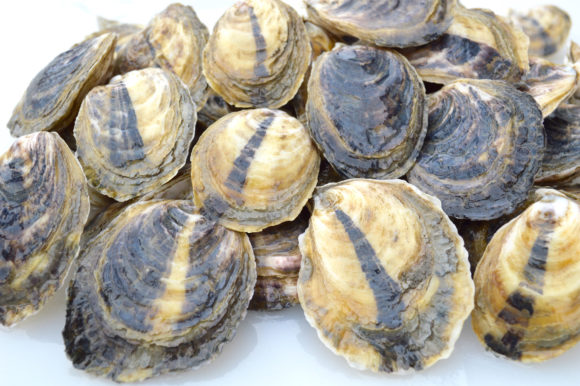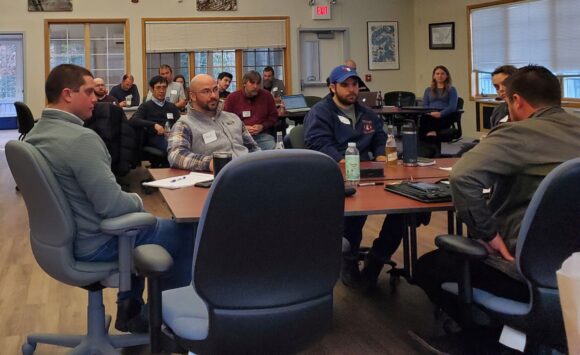
Eastern oysters.
The inaugural Rutgers Shellfish Research Symposium, in partnership with the New Jersey Aquaculture Association and the Haskin Shellfish Research Laboratory, was held on January 18 at the NJAES Jacques Cousteau National Estuarine Research Reserve
The symposium was organized by Michael DeLuca, director of the Rutgers Aquaculture Innovation Center, and Michael Acquafredda, (GSNB’19) a Rutgers graduate of the doctoral program in Ecology and Evolution, who currently serves as a postdoctoral research associate with the National Oceanic and Atmospheric Administration (NOAA).

Rutgers Shellfish Research Symposium.
The symposium was an opportunity for more than 45 New Jersey shellfish growers, resource managers, grant funders, students and conservation groups to connect directly with researchers studying aquaculture and shellfish ecology in the state.
Diana Burich, director of education at the New Jersey Sea Grant Consortium expressed her thanks at being included in the inaugural event bringing together the various constituencies that actively support, facilitate and fund shellfish research in the state. “I want to thank you again for including me in the symposium. It went really well, I enjoyed all of the presentations and made some nice connections.
“I was pleased to be able to share the Apprenticeship for Shellfish Aquaculture Program with the group. It seems like folks were interested as well. A win-win for all,” she added.
Kyle Gronostajski, environmental director of Jetty Rock Foundation, a local non-profit devoted to the protection of the oceans and waterways, also expressed his appreciation to the organizers for the collaborative experience. “I want to thank Michael DeLuca and Michael Acquafredda for the symposium. Super informative and great to network with the aquaculture community at large in New Jersey. Keep Jetty Rock Foundation in mind next year as this is the type of event we’d be happy to support.”
The event featured 20 lightning talks that were followed by four breakout groups that gave growers and researchers an opportunity to share, in a small setting, their thoughts on emerging research priorities, which fostered the creation of future directions and collaborations.
Key priorities included the potential avian impacts on floating gear, advances in culture of shellfish for habitat restoration, genetics to improve survival of hard clams and future workforce development.

